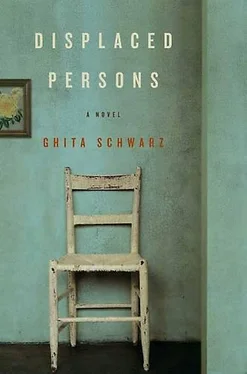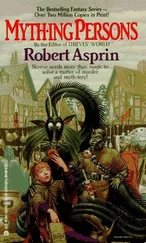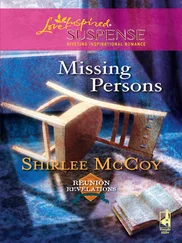Fela had left to talk to Larry from the kitchen. Helen had stayed. She had sat on the bed and asked what he wanted. I don’t know, he had said. I don’t know what I want. I can’t make a decision. Helen thought he might be too tired to make a decision; why didn’t he decide when he felt a little better? It wouldn’t be long. He had whispered, Everyone wants for me to decide. And Helen had answered, hands folded in her lap, There’s plenty of time to decide. Plenty of time. No need to rush.
“He saw Hinda. With Mayer.”
“That’s news.”
“Nothing new,” said Pavel. “All the same.”
“What happened?” Helen was looking at Fela, but Fela said nothing. She almost was smiling, making fun, perhaps, but trying to hide it.
Pavel tapped his mug with his fingers. “I took them to the club.”
A pause. “Did you wear that shirt? It looks very good on you.” It was cornflower blue, casual, and he had worn a dark gray tie.
“I told you, Pavel! It’s beautiful!” said Fela. “I bought it for him, Helen. It’s maybe five years old.”
“How did it go?”
“Fine.”
“I mean, how do you feel about it?”
“Okay.” He turned his eyebrows up, lifted his hand to the side.
“Okay?”
“Okay, like nothing.” Pavel smiled. His throat was beginning to hurt again, even after the soup. But what could he do? It was worth it to give some little conversation when his daughter was here.
“What do you mean, nothing?”
Fela interjected. “That’s just what I said. I came home from the store and he was sitting, just in his chair. Nothing, nothing. Like now.” She went on. “‘So how did she look?’ I said. And he said, ‘Like a shriveled-up old woman.’”
“She did,” rasped Pavel. “Like a shriveled-up old woman.”
Helen turned from one to the other. “I guess it’s been a while.”
Fela slanted her eyes. “He saw her on the street once, in Midtown, not so long ago. But from a distance.” Then said, almost sharply, “Do you want some fruit? I have grapes.”
She got up from the table. Pavel watched her back, wide and regal, swathed in a violet cardigan. She banged around the kitchen counter, clapping the plates and bowls together. But nothing would break. She took care with dishes. He sniffed his light tea. He knew he was better, that when they went for his checkups the doctor now told him the same things he told her, that there were no terrible whispers about his health, the way there had been before the surgery, when his lungs would fill up with water in the middle of the night and Fela would hear him gulping and expelling air like a locomotive. He wasn’t eggshells anymore. She snapped at him and he snapped back. He wasn’t glass.
He was a tough strip of twill. More, he was human, he was Joseph, the slave and prisoner pricked with bad luck and good, and smart enough to keep quiet, at least after he had learned a few lessons. The brother sold down the river, robbed of his beautiful coat. Everyone wanted Joseph dead and Joseph had held out. But Joseph died in the end, as Pavel supposed he himself might too. But not yet. He had something in him still, he was sure. Something in him still.
“I have a big box of letters she sent me when I was in Germany after the war, waiting for the visa. What she said in those letters! I was to her like a king, a prince!” He stopped, his throat aching, and took a sip of tea.
“So what, Pavel?” called Fela, from the counter. “You think she remembers?”
“One day,” he croaked, “one day I’ll take out that box and send her those letters. In one package. Just to remind her.”
“Ha,” said Fela. “And what will she do with them?” She came back to the table and moved into her chair.
“Why would you do that, Dad?”
“I don’t know,” said Pavel, looking at Helen’s lowered chin, at Fela’s tight mouth. “Just to see. Just to see.”
“I think you should keep them.” Helen pulled at a grape.
“You think?”
So maybe he would keep them. Maybe Hinda felt no guilt. Maybe he felt nothing either, no grief, no sorrow, not even, after seven years, humiliation. Maybe no one felt anything. It was all just people, the members of a family, streams of wool thread, separate, hooked into the same loom by coincidence, touching and twisting only when the design required. Maybe no one felt anything for anyone but the missing. Wouldn’t that be a joke! Surviving in order to argue and hate.
His daughter was staring. “You’re laughing,” she said. “Why are you laughing?”
Was he laughing? He supposed that he was. Pavel looked straight at Helen, trying to stop.
“I’m laughing,” he rasped, beginning to grin, his gums dry and exposed. “Why am I laughing? I don’t really know.”
But really he did. He patted her hand. He laughed, he thought, because it was funny.
September 1999
T HE FUNERAL OF TSIPORA Sheinbaum, once married to the leader of the Belsen refugees, was to begin at nine o’clock in the morning, promptly. Rush hour. But Fela was not nervous. Now that Pavel had been forbidden by the doctors to drive, they would get a ride from Rego Park to the memorial chapel in Manhattan. They would arrive on time, relaxed, their stomachs calm. Pavel would sit in the front to stretch out his bad leg, and she would sit in the back, staring out the window, her lower back resting against a cushion, with time for herself, not worrying. No responsibilities except to sit. Serene.
Pavel’s oldest friend, Fishl, picked them up in front of the house. He was three years older than Pavel, but he drove more stably, and without the twenty-mile-an-hour caution, not to mention the bravery against motorcycles and sports cars, that had made Pavel’s driving notorious among his friends. Fishl drove an Oldsmobile, the kind with the long fronts that protected people in case of accident. With such a big vehicle, parking would be a problem in Manhattan, but it was worth it. Fela liked Fishl’s car, its unused lighters in the backseat, the windows that came down at the push of a button. The front had room for Pavel to stretch out his bad leg. She knew he was relieved not to drive, despite his protests to the contrary.
They would see everyone; with Dincja so sick, Fishl was excited to be out. These were not his close friends, although he knew one or two of them as long as Pavel had, and he wondered aloud, all across the Triborough Bridge and through Central Park, who would be there, who would be missing. There had been a feud between Tsipora and Gershom, now a prominent donor to charity, a feud that had started five years ago, about this project or that museum, some board that one or another was on, a big to-do. Pavel had trouble keeping up with this kind of detail-he never liked the politics, and they didn’t have the money to participate anyway-but he knew, from his head to his feet, that Tsipora was in the right. And even if she wasn’t, Gershom was in the wrong. They had been somewhere recently, Pavel and Fela, and Gershom had come up to them and greeted them warmly, all the while ignoring Tsipora, who stood next to Fela. It was a terrible humiliation for Tsipora, one that implicated Fela and that made her feel ashamed to this day. So what if he was prominent! Did that mean they all had to bow down to him? To the point of abandoning a friend?
Tsipora was the last link that bound them all together. No nickname, although there must have been something as a girl. Fela could not imagine it. She was a very grand lady. To Fela and to everyone else living she was always Tsipora, and the name, three syllables, biblical yet modern, elegant and large, evoked exactly the story it came from: Tsipora, wife of Moses, traveling with him, a partner. Yet the Moses of Tsipora’s life, her husband Yehuda, Yidl, was long dead. Twenty-five years now. And what had happened to the first Tsipora, the one from the Torah? No one knew. Not worth mentioning, the life of the wife. Ha. So, times had not changed too much.
Читать дальше











